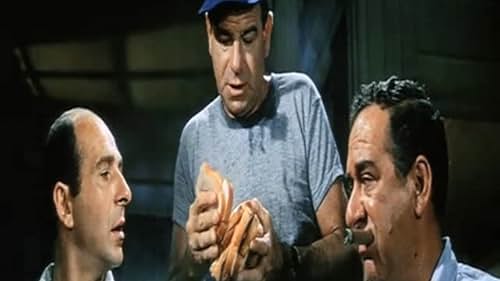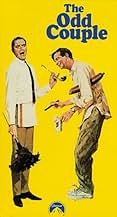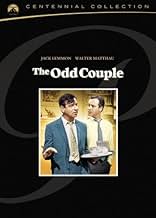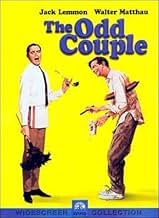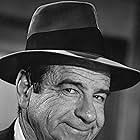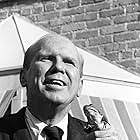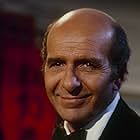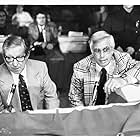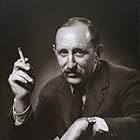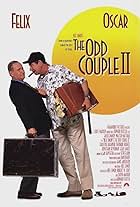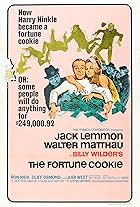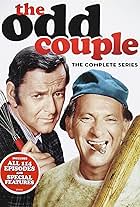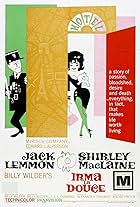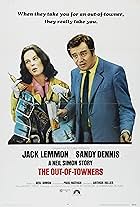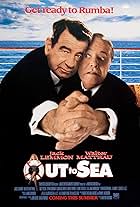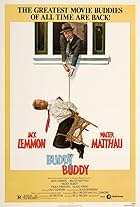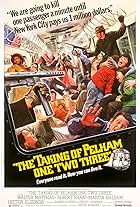A New Yorker newly separated from his wife moves in with his best friend, a divorced sportswriter, but their ideas of housekeeping and lifestyles are as different as night and day.A New Yorker newly separated from his wife moves in with his best friend, a divorced sportswriter, but their ideas of housekeeping and lifestyles are as different as night and day.A New Yorker newly separated from his wife moves in with his best friend, a divorced sportswriter, but their ideas of housekeeping and lifestyles are as different as night and day.
- Nominated for 2 Oscars
- 3 wins & 9 nominations total
- Murray
- (as Herbert Edelman)
- Matty Alou
- (uncredited)
- Sports Announcer
- (uncredited)
- Home Plate Umpire
- (uncredited)
- Hotel Clerk
- (uncredited)
- Bartender
- (uncredited)
- Chambermaid
- (uncredited)
- Bowler
- (uncredited)
Storyline
Did you know
- TriviaWhen getting ready for their dinner with the ladies, Oscar jokingly asks, "You think Mozart goes good with meatloaf?" Walter Matthau was a passionate Wolfgang Amadeus Mozart enthusiast, and had extensive knowledge of his work.
- GoofsThe copyright date is shown as MCMXLVII (1947) instead of MCMLXVII (1967) as the copyright year for the film during the opening credits.
- Quotes
Oscar Madison: I can't take it anymore, Felix, I'm cracking up. Everything you do irritates me. And when you're not here, the things I know you're gonna do when you come in irritate me. You leave me little notes on my pillow. Told you 158 times I can't stand little notes on my pillow. "We're all out of cornflakes. F.U." Took me three hours to figure out F.U. was Felix Ungar!
- Crazy creditsWhen the credits for Cecily and Gwendolyn Pigeon are displayed, they are first in the wrong order (since Oscar also keeps mixing them up) and after a couple of seconds they shift to their correct positions.
- ConnectionsEdited into The Kid Stays in the Picture (2002)
- SoundtracksRule Britannia
(1740) (uncredited)
Music by Thomas Augustine Arne
Words by James Thomson
Briefly sung a cappella by Walter Matthau
Calling to mind Billy Wilder's screenplay for 'The Apartment (1960),' this Neil Simon comedy builds itself around around a rather morbid premise. Compulsive house-cleaner Felix Unger (Lemmon), having just been evicted by his wife of twelve years, attempts to commit suicide, but fruitlessly abandons the idea after he wrecks his back trying to open the hotel window. Dejected, he arrives at the house of good friend Oscar (Matthau), a divorced slob who lives alone on a diet of potato crisps and green sandwiches (that might contain either very new cheese or very old meat!). Oscar kindly offers Felix a place to stay, but is soon overwhelmed by his friend's finicky personality and constant insistence on absolute cleanliness. The pair form an unusual sort of marital arrangement, with Felix assuming the role of the effeminate and constantly-nagging wife, and Oscar as the sloppy, unappreciative husband who always comes home later than he's supposed to. This is a marriage that barely lasts three weeks, and, by the end of it, we can completely sympathise with Felix's ex-wife, who remains unseen.
'The Odd Couple' is a terrific comedy, most of all because it has a lot of heart. For all their arguing, it's obvious that the two roommates have plenty of affection for each other, most movingly seen when Felix tries to launch into a furious tirade, instead perhaps inadvertently ending up informing Oscar how "tops" he his. The pair's four poker buddies (John Fiedler, Herb Edelman, David Sheiner and Larry Haines) are also constantly badgering each other about some obscure annoyance, but you can't deny that they've got the best of intentions. Their decision to treat Felix as though nothing has happened to him may have sounded fine in theory, but maybe being ignored wasn't quite the correct solution to Felix's gloomy feelings of inadequacy and inconsequentiality. Unlike some comedies based on popular stage plays {I was recently disappointed by Wilder's 'The Seven Year Itch (1955)}, this film doesn't simply strike at the same chord throughout, and the relationship between the two leads is progressively developed, through tears, laughter and much disagreement.
Details
- Release date
- Country of origin
- Language
- Also known as
- Dvojica bez zene
- Filming locations
- Production company
- See more company credits at IMDbPro
Box office
- Budget
- $1,200,000 (estimated)
- Gross US & Canada
- $44,527,234
- Gross worldwide
- $44,527,234
Contribute to this page


